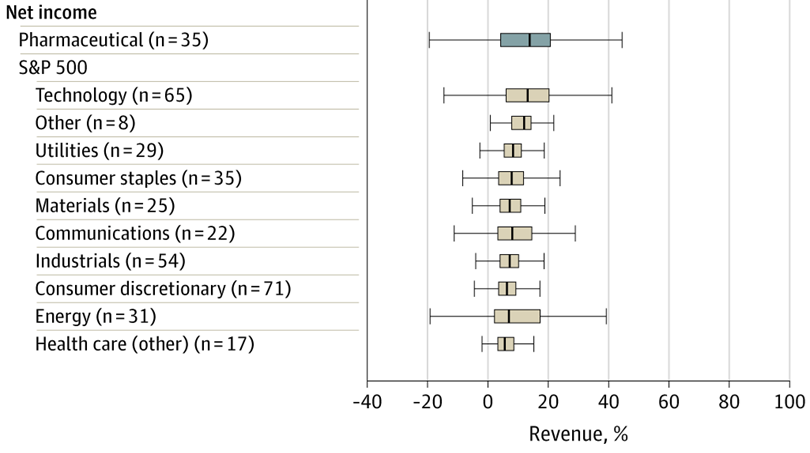In a study presented at the 25th international Aids conference in Munich on Tuesday, experts calculated that the minimum price for mass production of a generic version, based on the costs of lenacapavir’s ingredients and manufacturing, and allowing for 30% profit, was $40 a year , assuming 10 million people used it annually. In the long-term, 60 million people would probably need to take the drug preventatively to lower HIV levels significantly, they said.
Accounting for 30% profit seems reasonable to me.
Yet they’re selling it for 1000x the price.
I understand they need to recoup research costs, but…
I have no other words.
The research cost recovery line they often yap about is bullshit itself though. The overwhelming majority of pharma research like the one involved here is subsidized through taxpayer dollars already, and they get tax incentives and write offs for failed research. If we had a sane, working government we could nationalize all life saving medications funded by public money while still allowing the inventors to enjoy some (reasonable) economic benefits from the research
Yeah and insulin can be made for like $5.
It is elsewhere in the world. The US is an exceptional case.
It’s a Br*tish news article so they actually do pay about that much for insulin, if they pay at all.
Well I’m an American with type 1 diabetes and I’m jealous. I’ve paid $600 for a box of 5 insulin pens before when I didn’t have insurance.
Knowing you have HIV decreases transmission by 90%. Giving antivirals decreases transmission by 99%. Back in the early 2000 I saw a paper saying we could make HIV tests for 10 cents a person if we wanted to produce enough for every person on the planet (0.1810^9= $800 million). That was something that could have been done back then. $40 a vaccine would be a price tag of $320 billion
I lost so many friends and lovers to AIDS in the late 1980s and early 1990s. Even my mom’s first husband died of AIDS. A vaccine took way too long, and now that there is one this is what they do?!? The patents need to be voided and the vaccine distributed free of charge by amy clinic or hospital that takes federal funds.
I think many people dramatically overestimate how profitable drug companies are. The average net profit for a brand-name drug manufacturer is actually less than 30% (source). They’re about as profitable as tech companies.

That’s still quite profitable, but I suspect that if you were to limit them to 30% net profits on their most successful blockbuster drugs, their overall net profits (which have to compensate for the R&D that goes into failed drugs) might not even be positive.
Why should drug companies be profitable at all? Seems like the perfect thing to be nationalized and/or even considered a basic necessity.
Governments do have the option of simply buying the patent from the drug company (no communism necessary) but Americans have rejected socialized medicine for Americans. I don’t expect that they would want to subsidize medicine for poor Africans.
I think access to certain drugs that deeply impact the public health should be capped in the name of national security. Vaccines for AIDS, Flu, COVID-19, H1-N1, HPV, etc. and things like insulin, should be freely available to the public. Let the firms make money off of the thousands of other meds they push.
In that scenario, why would drug companies bother to develop drugs that deeply impart public health? They already prioritize drugs for smaller numbers of rich people rather than drugs for larger numbers of poor people (e.g. antibiotics). If they can’t make a large profit off of developing an AIDS vaccine, they’re going to work on something like weight-loss drugs instead.
Carrot and stick. The carrot is money for R&D plus a guaranteed purchase of their stock at a fixed and profitable markup. The stick is a regulatory hellscape and guaranteed perpetual purgatory for their other meds if they don’t play ball. Keep the gov happy, and the gov keeps you fat and rich. Drag your feet on critical care meds and risk your skinny pills not be sold in the main market for them.
A lot of that research isn’t done by these companies. Further, their marketing budget is often huge, the research budget is often lower than that.
you’ve just described every decent public health system in several countries, many of them not really rich, such as brazil.
Yep.
Is this accounting for inflated C-suite salaries/stock?







